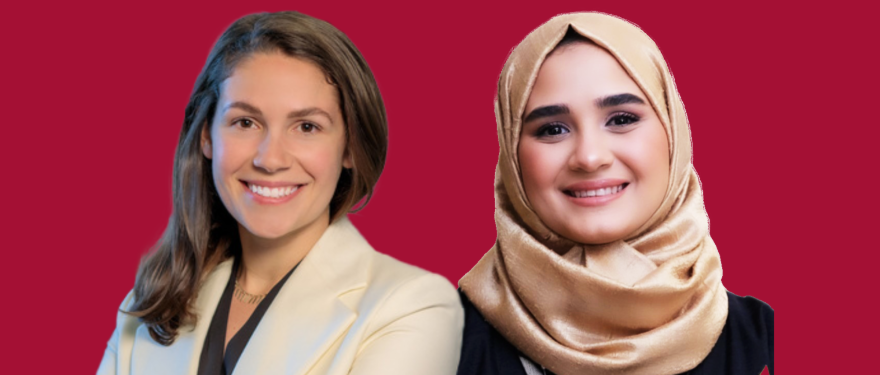In this blog, Loujaine AlMoallim (MBA 2024) interviews Technology and Operations Management Professor Elisabeth Paulson about her personal journey, her time at Harvard Business School, and her advice for HBS leaders.
Can you briefly tell us about your journey that got you to where you are today?
My mom was a statistics professor, so a career in academia was always something that I considered. During undergrad, I started doing research and was involved in high school tutoring programs. I loved diving deep into complex problems, and helping others apply mathematical tools to their own problems. I had a few industry internships and jobs during and after college to explore other opportunities, but I couldn’t shake the pull I felt toward academia. During grad school, I was able to combine my affinity for math and data with my passion for working on real-world problems: something that I am lucky enough to continue doing at HBS.
How has your teaching experience been at HBS so far? What do you like most about the case method and classroom experience?
I just finished my first semester of teaching, and it was an amazing experience. Yes, teaching for the first time is stressful and can be scary, but it was also incredibly fun—something that I attributed largely to the case method (and Section I!). It’s exciting to see where the class discussion will go, and witness section mates learning from each other. The case method is also equalizing—in any given discussion, both experts and non-experts can similarly promote classroom learning by asking and answering questions. This creates a unique and supportive classroom culture.
Your research focuses on data-driven policy making and the design of interventions for social good. Could you give us a summary of tools and methods related to your research that can positively support public and non-profit organizations?
My research uses data and analytics to design or improve tools (e.g., policy interventions) that will contribute to social good. Broadly speaking, to accomplish this, there are two steps: 1) understand the impact of the intervention and 2) decide how it should be deployed in order to be most effective. Rigorously accomplishing both steps requires many different tools from the fields of statistics, machine learning, and optimization. Also, in many cases, simply increasing effectiveness is not enough. We also need to consider equity and fairness implications, the practicality of the proposed solution, and whether the method can be clearly explained to the public and/or policymakers.
What recommendations would you give current and future HBS leaders when it comes to advising and mentoring in their position?
Data-driven decision-making is a powerful tool. A first step to successfully deploying such tools is to have clear (measurable) objectives and think through tradeoffs. Ask yourself: what is the metric that I care the most about, and for other metrics, what trade-offs am I willing to make?
Throughout your journey, what is the greatest lesson that you believe you learned and what is one piece of advice you would give people reading this?
Be open to having your opinion changed. The ability to form strong opinions is less important than the ability to synthesize information and update your thinking.
Loujaine AlMoallim (MBA 2024) is a Saudi Arabian who spent most of her formative years in Canada. After completing her undergraduate degree at McGill University majoring in International Management, she moved back to Saudi Arabia and worked in Consulting. She enjoys traveling and exploring new places, hosting people over for small gatherings, and baking and decorating cakes.
Elisabeth Paulson is an Assistant Professor of Business Administration in the Technology and Operations Management Unit at Harvard Business School. She teaches the first-year course on Technology and Operations Management in the required curriculum.
This article was originally published in the March 2023 edition of the Harbus.

